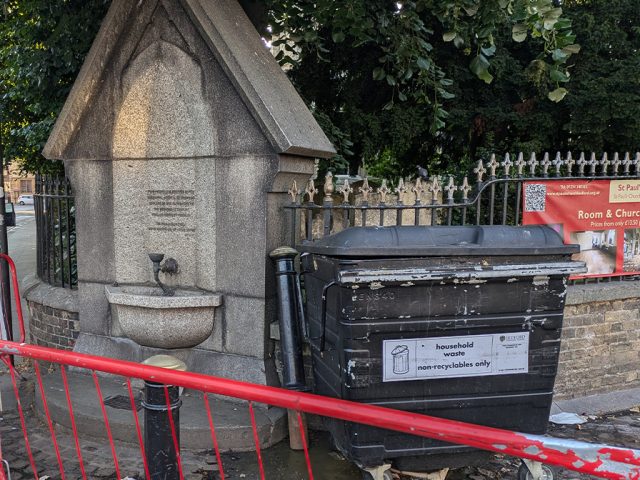"Chief Constable Rodenhurst's unusual retirement sparks debate: Bedfordshire weighs the impact on trust, finances, and police reform. Can experience and innovation co-exist?"
To drink or not to drink from Bedford’s water fountains, that is the question many residents are pondering. Despite its status as a basic human right and a crucial component of our health and well-being, access to clean water in Bedford remains shockingly limited. As a town striving for sustainability and public health, it is time we address the glaring absence of public water fountains.
The Importance of Clean Water Access
Water is undeniably the essence of life, recognised by the United Nations as a fundamental human right. It supports health, dignity, and prosperity. Yet, amid this global acknowledgment, Bedford finds itself lacking even a single free public drinking fountain maintained either by the council or central government. This deficiency not only undermines public health but also indicates a significant oversight in urban planning.
Environmental and Health Benefits

Source: https://www.bedfordindependent.co.uk/letters-to-drink-or-not-to-drink-from-bedfords-water-fountains/
The benefits of free public water fountains are manifold. They provide an environmentally friendly alternative to single-use plastic bottles, of which one million are purchased worldwide every minute. By offering a free and accessible source of clean water, these fountains also help combat the consumption of sugary and intoxicating beverages, promoting healthier lifestyles.
Global Comparisons
Looking beyond our borders, the United Kingdom is behind many other nations regarding access to free public drinking fountains. In European urban centres, such facilities are commonplace. In Australia, the town of Bundanoon banned single-use plastic bottles in 2009 following a unanimous vote by residents, an initiative supported by the installation of free water fountains.
Current State of Water Access in Bedford
In Bedford, there is a solitary public water dispenser located obscurely on the ground floor of the Harpur Centre. While this is a positive step, it is grossly inadequate for a growing town like Bedford. The dispenser, despite its hidden location, has been used extensively, demonstrating the demand and utility of such facilities.
Historical Context
Public water fountains were once more prevalent in Britain. The first drinking fountains appeared during the Victorian era, driven by the need for safe alternatives to beer, which was often safer to drink than polluted water. Many of these 'temperance fountains', funded by the Metropolitan Free Drinking Association, fell into disrepair and were demolished in the mid-20th century.
Current Challenges
Today, the few remaining historical fountains, such as the one near St. Paul's Church in Bedford, are in states of neglect. These dry, derelict structures are unsuitable for public use, often filled with rubbish and poorly maintained. Another fountain in Bedford Park has been vandalised, yet nearby, the council maintains a decorative fountain, emphasising misplaced priorities.
Successful Initiatives Elsewhere
Some British cities have made progress. In London, over 100 water fountains have been installed in high-footfall areas due to a partnership between the Mayor and Thames Water. Cities like Hull and Brighton have followed suit, showing that these initiatives are both viable and popular. These examples indicate a pathway forward for towns like Bedford.
Commercial Interests and Obstacles
One significant barrier to the widespread adoption of public fountains is commercial vested interests. Retailers and companies that profit from bottled water sales have historically opposed such initiatives, fearing reduced profits. Despite this resistance, organisations like Network Rail have started to include drinking fountains at stations, acknowledging the public demand and environmental necessity.
Call to Action
Given the rising temperatures and increasing frequency of heatwaves, it is imperative for Bedford to prioritise the installation of public drinking fountains. These should be placed in high-footfall areas to maximise their impact. Making refilling water bottles a norm while reducing reliance on single-use plastic is not just a sustainable goal but a public health imperative.
Let us take inspiration from successful models in other cities and aim to make Bedford a leader in providing clean, accessible water. The introduction of more public water fountains in places like Bedford Park and the Town Centre would mark significant progress towards this goal.